I do not write about nice people. I am not nice people
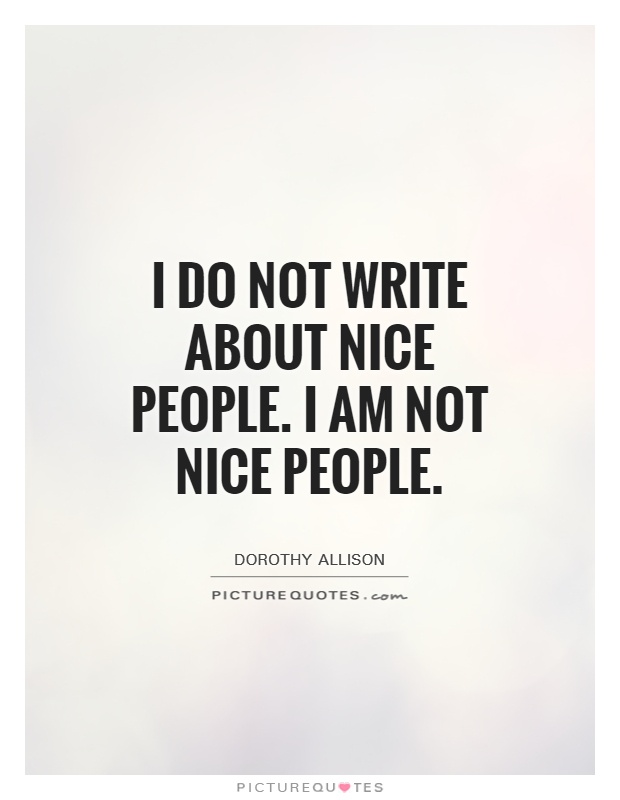
I do not write about nice people. I am not nice people
Dorothy Allison, a renowned American writer known for her raw and unapologetic portrayals of working-class life, gender, and sexuality, once famously declared, "I do not write about nice people. I am not nice people." This statement encapsulates Allison's approach to storytelling, which is characterized by its unflinching honesty and willingness to delve into the darker, messier aspects of human nature.Allison's work often centers on characters who are marginalized, misunderstood, and flawed. She is not interested in creating idealized, one-dimensional portrayals of individuals, but rather in exploring the complexities and contradictions that make us human. Her characters are often grappling with issues of poverty, abuse, trauma, and discrimination, and Allison does not shy away from depicting the harsh realities of their lives.
In her most famous novel, "Bastard Out of Carolina," Allison tells the story of a young girl named Bone who grows up in a dysfunctional and abusive family. The novel is a searing exploration of the cycle of violence and poverty that can trap individuals in its grip, and Allison's unflinching prose lays bare the emotional and physical scars that result from such circumstances. Through Bone's eyes, we see the world as a harsh and unforgiving place, where survival often means making difficult and morally ambiguous choices.
Allison's refusal to write about "nice people" is not a rejection of empathy or compassion, but rather a recognition of the complexity of human experience. She understands that people are capable of both great kindness and cruelty, and that true understanding requires an acknowledgment of the full spectrum of human behavior. By refusing to sanitize or sugarcoat her characters' lives, Allison challenges her readers to confront uncomfortable truths about themselves and the world around them.
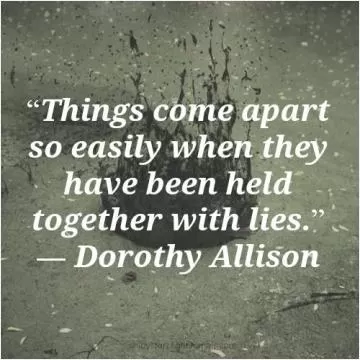




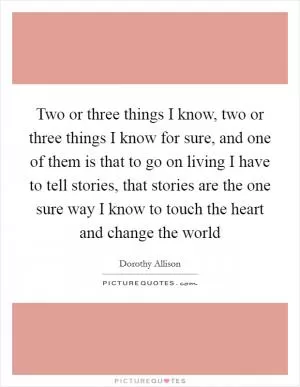
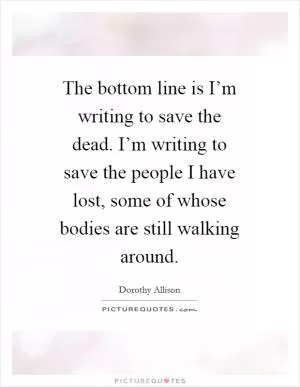

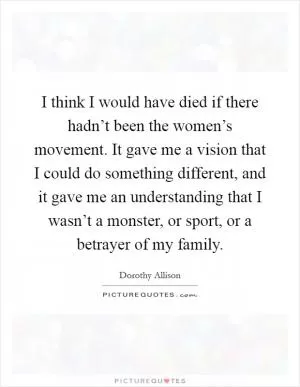



 Friendship Quotes
Friendship Quotes Love Quotes
Love Quotes Life Quotes
Life Quotes Funny Quotes
Funny Quotes Motivational Quotes
Motivational Quotes Inspirational Quotes
Inspirational Quotes